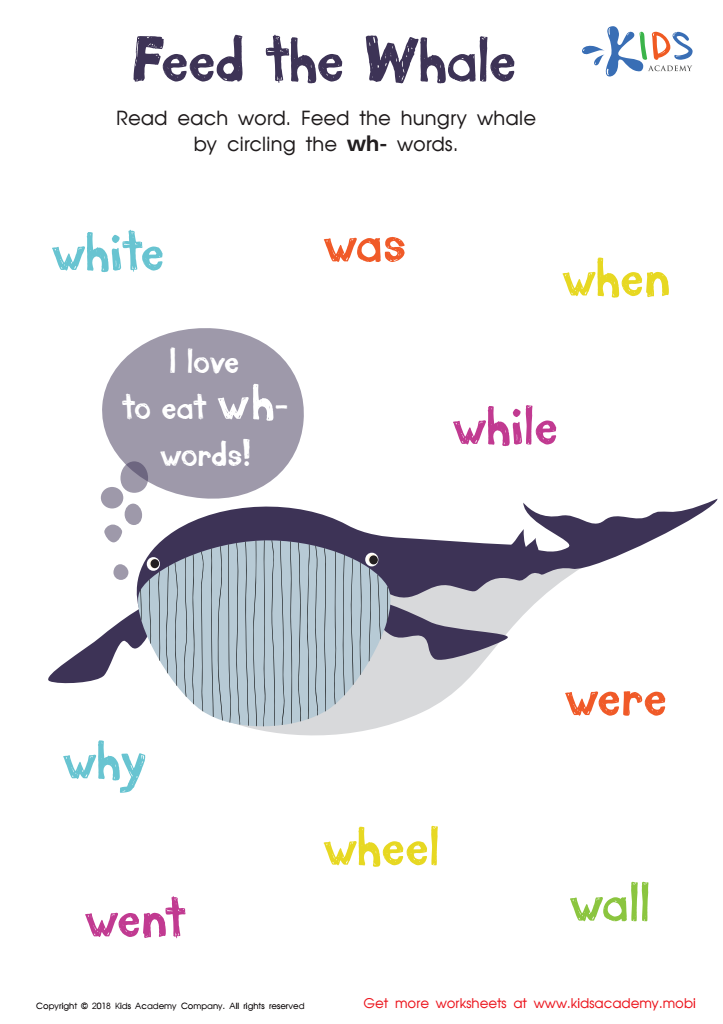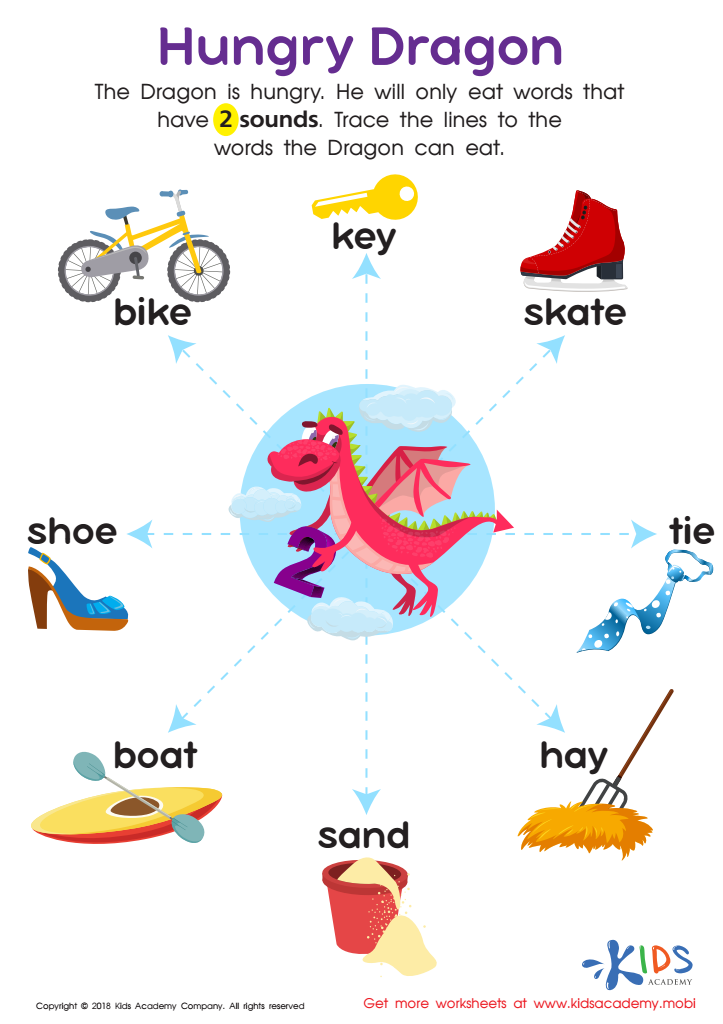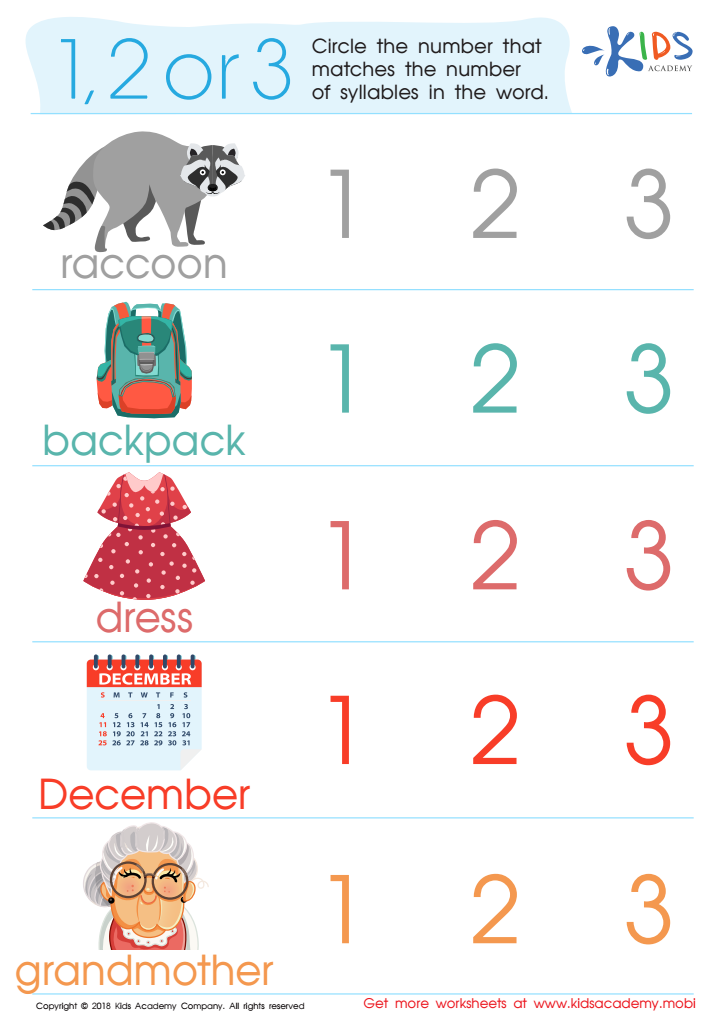Number Recognition Normal Alphabet Worksheets
3 filtered results
-
From - To
Enhance your child's numerical skills with our “Number Recognition Normal Alphabet Worksheets” from Kids Academy. Designed meticulously for early learners, these worksheets seamlessly combine alphabet and number practice to promote literacy and math understanding in one engaging activity. Each sheet encourages kids to recognize, trace, and write numbers while reinforcing alphabet familiarization through playful exercises and vivid imagery. Our worksheets cater to different learning styles, ensuring every child builds confidence in their abilities. Ideal for preschool and kindergarten levels, they set a solid foundation for future academic success. Discover a fun and effective approach to learning with Kids Academy!


Feed the Whale Worksheet


Hungry Dragon Worksheet


1, 2 or 3? Worksheet
Number recognition in early childhood education is crucial because it lays the foundation for numeracy skills that are essential for later academic success. Parents and teachers should care about number recognition as it assists children in understanding the world around them quantitatively. It goes beyond mere rote memorization of numbers and involves recognizing, naming, and understanding what numbers represent.
When children understand number recognition, they are more prepared for arithmetic operations like addition, subtraction, and even more complex math concepts down the line. It also enhances logical thinking and problem-solving skills. For instance, recognizing the number '3' allows a child to grasp that it quantitatively represents three objects, not just a symbol.
Linking numbers with the normal alphabet helps create a more enriched learning environment. When children see the relationship between numbers and letters (like '5' and 'F'), it can facilitate cognitive development through pattern recognition. Teachers can use interdisciplinary methods combining numbers and alphabet in literacy activities, which makes learning more engaging.
Ultimately, fostering strong number recognition skills in young learners sets them on a path to educational readiness and life skills, such as time management and budgeting, fostering confidence and independence. Therefore, parents and teachers have a vital role in ensuring children master these basic but crucial skills early on.
 Assign to My Students
Assign to My Students














